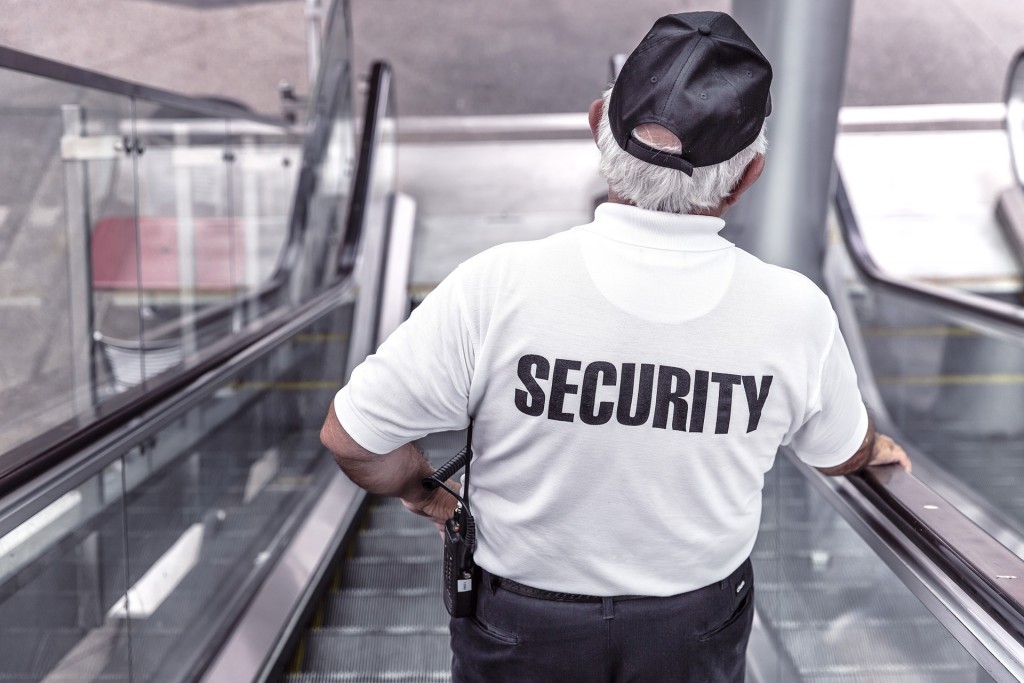In 1992, Amir Varick Amma was sentenced to 25 years to life in prison on drug charges. Convicted of two nonviolent drug felonies, he was unfortunate to be sentenced under the Rockefeller drug laws – resulting in a harsh sentence typically reserved for murderers.
After drug law reforms were passed in New York in 2004 and 2009, a judge reduced Amma’s sentence. He was released after spending 19 years behind bars.
Finding work with a criminal record is no easy feat, and Amma was dismayed to find himself shut out of America’s burgeoning cannabis industry. Most cannabis programmes contain some sort of provision that bars convicted drug felons from applying for a license.
“Now that it’s becoming socially accepted, they’re trying to keep us out of the industry,” said Amma. He now works as an organiser at All of Us or None, advocating for the rights of currently and formerly incarcerated individuals.
For those with criminal convictions for actions that are now sanctioned by state governments, “the only thing they can do is become a consumer,” said Amma. “That’s not right.”
Four U.S. states have legalised recreational use of cannabis, and 25 states have a medical cannabis programme. On the global stage, this makes the U.S. one of the more progressive countries on cannabis policy. But for the nation that basically created the ‘war on drugs’ as a way to disrupt black communities, simply legalising it does not solve the racial and social inequities that prohibition helped to create.
Social justice is one of the key arguments for legalisation. But even in states with legal cannabis, racial disparities in arrests remain. One example is public consumption, which no legal cannabis state currently allows – of course, it is people of colour who bear the burden of arrests. In Colorado, the racial disparities in youth cannabis arrests became even worse after legalisation.
But recently, local governments in the U.S. have been approaching legalisation with these facts in mind, and developing policies in hopes of remedying the injustices of the ‘war on drugs’.
Oakland, Calif. made headlines in May when the city council passed an “Equity Permit Programme,” the first of its kind in the nation. Instead of barring those who have been convicted of cannabis crimes, the city will give priority to residents who have been recently convicted of a cannabis offence, or live in one of several police beats chosen for their high levels of cannabis arrests.
Councilmember Desley Brooks added the equity amendment to the larger medical cannabis programme, which was passed in a unanimous vote. But the programme is not without its critics.
“The actual text of the ordinance is a little controversial for procedural reasons,” said Stefan Borst-Censullo, a criminal defence attorney and medical marijuana advocate. “People are struggling to figure out how it’s actually going to be facilitated. But there’s a powerful intent behind what [Brooks] did.”
While many advocates questioned the practical implications of such a programme, all praised the motivation behind it.
“I’m very proud of what Oakland has done, their rationale for making those steps are completely just,” said Jesce Horton, co-founder of the Minority Cannabis Business Association (MCBA). “We’ll determine whether that [programme] is the best way to go once we see it in motion,” he said.
Amma offered his cautious support for the amendment as well: “We have to support it because at least it’s doing something,” he said. But he pointed out that the Oakland police beats included in the programme are being gentrified, and many of those who the programme is designed to help have likely moved out of the neighbourhoods.
Supernova Women, an organisation promoting women of colour in cannabis, has been pushing the city council to increase the number of police beats included in the programme. The city will consider adding additional neighbourhoods in September.
“The programme is great… but you’re seeing a multi-generational impact of the war on drugs,” said Sunshine Lencho, an attorney and co-founder of the organisation. “It should include families of the incarcerated.”
Lencho also thinks the programme should not be based on the type of conviction, and applicants should be evaluated on an individual basis. “You haven’t captured everybody if you only include the nonviolent offender,” she said.
There is increasing attention paid to policies like Oakland’s. Horton, who has served on governmental task forces in Oregon, said that there does seem to be a political will to push such policies. “The majority of people that I’ve come into contact with in the city and state are for it,” he said.
In June, Ohio legalised medical marijuana through its legislature, which will allow patients with certain qualifying conditions access to the drug. Ohio’s medical cannabis programme had an interesting provision: at least 15 percent of licenses must go to businesses owned by those from economically disadvantaged groups: African Americans, Latinos, Asians, and American Indians.
“Fifteen percent is limiting,” said Yulian Shtern, an attorney at the law firm Abrams Fensterman. “That’s always going to be the argument for the quota system. Does it go far enough?” he said. “I think the goal is right.”
While some experts have questioned the legality of such a provision, none of the attorneys interviewed for this article agreed.
“I think there’s been a fair amount of trying to figure out how to [allocate jobs and licenses] while towing a legal line,” said Brian Vicente, a Colorado-based attorney.
Vicente was one of the authors of Colorado’s legalisation measure. “Looking back, that’s one thing that I wish we would’ve addressed more clearly – allowing impacted communities to benefit from the industry,” he said.
At the end of the day, while legalisation measures can help address racial and social inequities, it’s not going to solve the underlying problems of an unfair criminal justice system.
“I do think that making an equity amendment is an important first step in understanding the landscape of the industry and ensuring some kind of economic fairness in accessing the industry,” said Elizabeth Kase, an attorney at Abrams Fensterman. “[But] this is a bigger picture discussion. It’s an unfortunate result of real or perceived racism that exists between law enforcement and those who are targeted in an imbalanced fashion.”
“I think only the federal government can really address [the bigger picture],” said Shtern. Recently, there has been more attention paid at the federal level to criminal justice reforms – notably President Obama’s clemency initiative. “But ultimately we really need a more global view of this issue to see how we can address it.”
For policymakers on the local level who do want to ensure fair access to a new industry, there are a few things to consider.
Track communities of colour. “This is how we understand where the problems are and how to improve,” said Horton. The MCBA is currently working with UC Berkeley on a survey to that end. “We don’t really know what is really out there. Are people actually applying? Are they not getting assistance after they apply?”
Another way to collect data is to require the local government to collect and report information on applicants. “Being required to report that data can flag potential discriminatory practices early on,” said Lencho.
Representation on governmental committees. “This is the single most important aspect to assuring equitable rules,” said Horton. Diversity is key when governments are writing the rules that establish an industry.
Include a racial impact statement. “Every hearing that I go to I ask them to incorporate racial impact statement,” said Amma. “How come these new laws don’t have any racial impact statement in them? [It’s] one thing that can show the ramifications of these policies.”
Right to appeal. If an individual is denied a cannabis license, he or she should have the right to appeal that decision. “The right to appeal any administration decision around your application adds transparency,” said Lencho.
Mona Zhang is a New York-based writer and editor of the cannabis newsletter Word on the Tree. Follow her on Twitter @ZhangMona.


